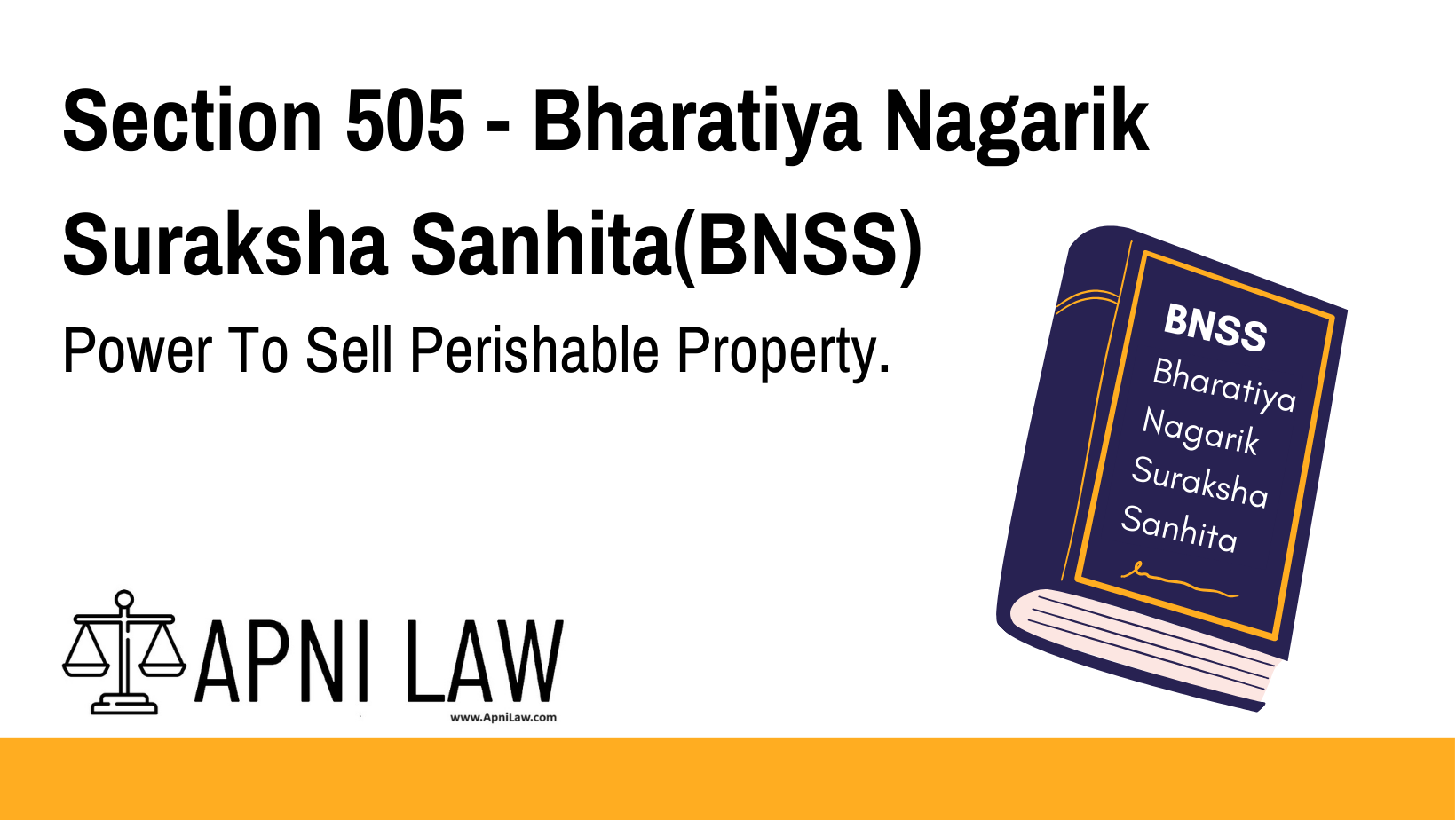Code: Section 505 BNSS
If the person entitled to the possession of such property is unknown or absent
and the property is subject to speedy and natural decay, or if the Magistrate to whom its
seizure is reported is of opinion that its sale would be for the benefit of the owner, or that the
value of such property is less than ten thousand rupees, the Magistrate may at any time
direct it to be sold; and the provisions of sections 503 and 504 shall, as nearly as may be
practicable, apply to the net proceeds of such sale.
Explanation of Section 505 BNSS
Section 505 of the BNSS empowers the Magistrate to sell perishable property when the rightful owner is unknown or absent, and the property is at risk of speedy decay. This ensures that valuable items are not wasted while maintaining legal accountability for the disposal of seized assets.
Key Provisions:
- Applicability: Applies when the owner is unknown or absent.
- Perishable Nature: Applies to items that can decay quickly, such as food, medicines, or certain chemicals.
- Owner’s Benefit: The Magistrate can order a sale if it’s deemed beneficial to the owner.
- Value Threshold: If the property’s value is less than ₹10,000, it can be sold without extensive procedures.
- Net Proceeds: The sale proceeds are managed as per the rules in Sections 503 and 504.
Illustration
Example 1: Seized Perishable Goods
During an investigation, a large quantity of perishable food items is seized, and no claimant appears. The items are deteriorating rapidly. The Magistrate orders their sale, and the proceeds are handled as prescribed by law.
Example 2: Abandoned Medicine Stock
A batch of medical supplies with an expiry date approaching is found abandoned. Since it’s perishable and the owner is untraceable, the Magistrate sells the items, ensuring the proceeds are appropriately managed.
Common Questions and Answers on Section 505 BNSS
1. What kind of property falls under Section 505 BNSS?
- Answer: Perishable property such as food, medicines, chemicals, or any items that can quickly decay or lose value.
2. Who decides if the property should be sold?
- Answer: The Magistrate handling the case makes this decision based on the condition of the property and the circumstances.
3. What happens if the property’s value is less than ₹10,000?
- Answer: The Magistrate may directly order its sale without following extensive procedures.
4. How are the proceeds from the sale managed?
- Answer: The proceeds are handled as per the provisions in Sections 503 and 504, ensuring legal accountability.
5. Can I claim the property after it has been sold?
- Answer: No, once sold, the property is no longer available. However, the sale proceeds might be claimed if proven to be rightfully yours.
Conclusion
Section 505 BNSS ensures that perishable property is disposed of efficiently, preventing waste and ensuring that the owner’s interests are safeguarded. By allowing the Magistrate to sell such items when necessary, the law maintains both legal integrity and practical functionality in handling seized goods.








